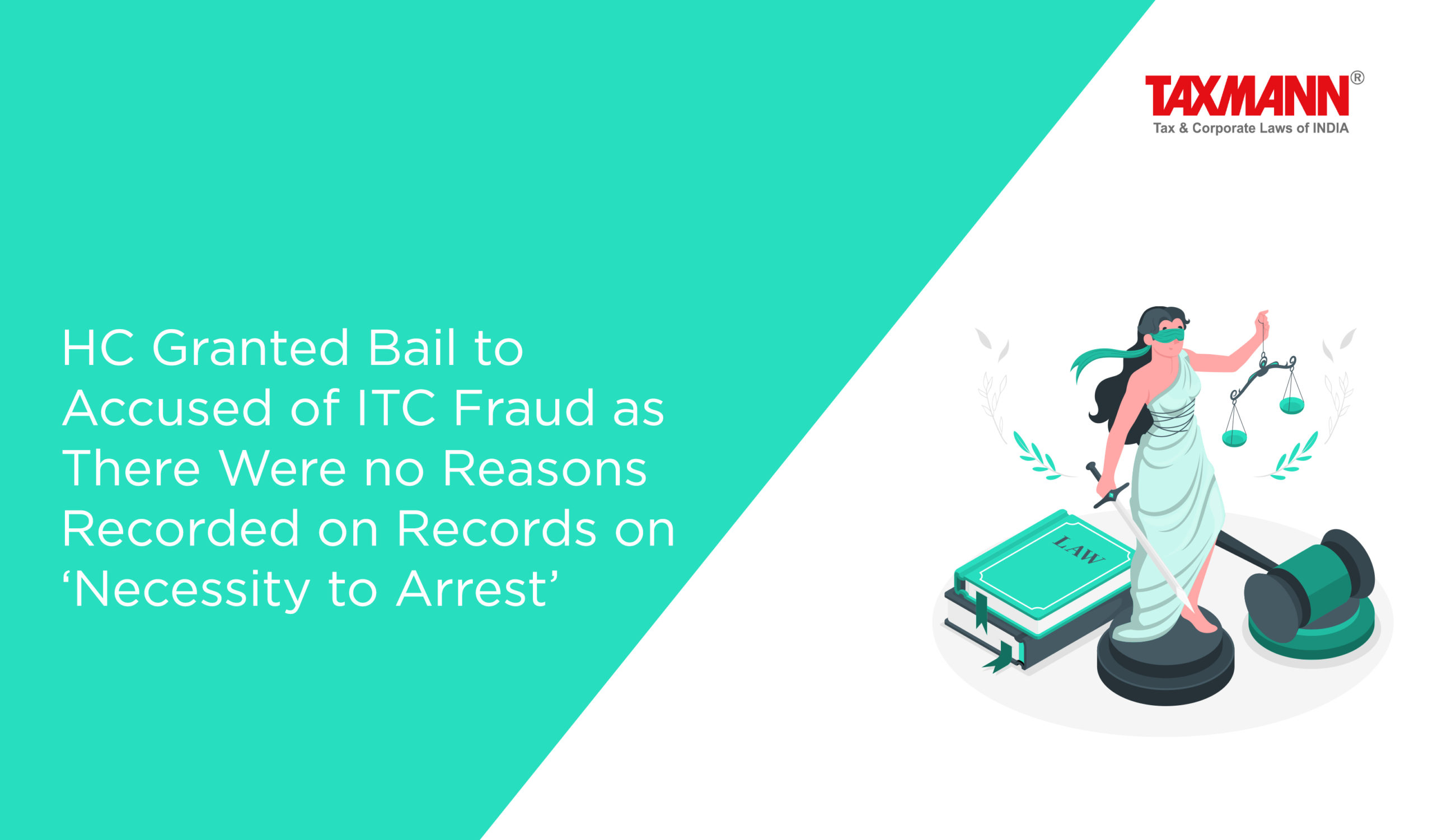HC Granted Bail to Accused of ITC Fraud as There Were no Reasons Recorded on Records on ‘Necessity to Arrest’
- Blog|News|GST & Customs|
- 2 Min Read
- By Taxmann
- |
- Last Updated on 9 August, 2023

Case Details: Ashish Kakkar v. Union of India - [2023] 153 taxmann.com 235 (Allahabad)
Judiciary and Counsel Details
-
- Pritinker Diwaker, CJ. & Ashutosh Srivastava, J.
- Raghav Dev Garg for the Petitioner.
- A.S.G.I., Dhananjay Awasthi & Gopal Verma for the Respondent.
Facts of the Case
In the present case, the petitioner was arrested for floating bogus firms and a formal arrest memo was served upon the petitioner by the Investigating Officer authorized by the Principal Commissioner. It filed application for interim bail on ground that no satisfaction was recorded by competent authority on ‘necessity to arrest’ as required under Section 41(1) of Cr. PC Act.
High Court Held
The Honorable High Court noted that under Section 69(1) of CGST Act, 2017, a discretion has been given to competent officer to authorize arrest for committing offences punishable under Section 132. The use of word ‘may’ in Section 69 shows that for exercising this discretion, reasons on ‘necessity to arrest’ must be recorded.
However, in the instant case, no such satisfaction regarding necessity to arrest has been recorded and there was nothing on record to show any past conduct of petitioner or that he had obstructed investigations to warrant arrest. Further, after arrest, the department had sought judicial custody meaning thereby that interrogation of petitioner was complete.
Therefore, the Court held that bail should be granted to petitioner on furnishing a personal bond in sum of Rs.1.00 crore with two sureties each of same amount and also subject to other conditions.
Disclaimer: The content/information published on the website is only for general information of the user and shall not be construed as legal advice. While the Taxmann has exercised reasonable efforts to ensure the veracity of information/content published, Taxmann shall be under no liability in any manner whatsoever for incorrect information, if any.

Taxmann Publications has a dedicated in-house Research & Editorial Team. This team consists of a team of Chartered Accountants, Company Secretaries, and Lawyers. This team works under the guidance and supervision of editor-in-chief Mr Rakesh Bhargava.
The Research and Editorial Team is responsible for developing reliable and accurate content for the readers. The team follows the six-sigma approach to achieve the benchmark of zero error in its publications and research platforms. The team ensures that the following publication guidelines are thoroughly followed while developing the content:
- The statutory material is obtained only from the authorized and reliable sources
- All the latest developments in the judicial and legislative fields are covered
- Prepare the analytical write-ups on current, controversial, and important issues to help the readers to understand the concept and its implications
- Every content published by Taxmann is complete, accurate and lucid
- All evidence-based statements are supported with proper reference to Section, Circular No., Notification No. or citations
- The golden rules of grammar, style and consistency are thoroughly followed
- Font and size that’s easy to read and remain consistent across all imprint and digital publications are applied



 CA | CS | CMA
CA | CS | CMA
